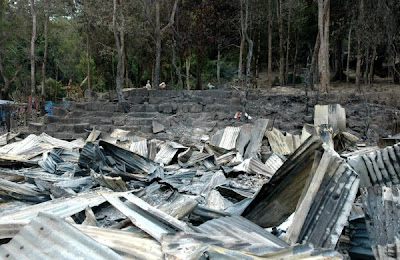2009-04-08
Xinhua
"The three weeks of exercises will see 2,000 troops from 13 countries participate," Chinese-language daily newspaper the Commercial News quoted Prak Sokhon, secretary of state for the Council Ministers, as telling a press conference at the Institute for Peacekeeping Forces, Mine and ERW (Explosive Remnant of War) Clearance in the province.
Meanwhile, the paper quoted the secretary of state as saying that the event will be conducted in the framework of the Global Peace Operations Initiative (GPOI).
GPOI once held such exercises in Bangladesh in 2008, Mongolia in 2007 and Indonesia in 2009, he added.
In early March, Pol Saroeurn, Commander-in-Chief of Royal Cambodian Armed Forces (RCAF), told reporters that Cambodia will host a large-scale ASEAN-U.S. military exercise in 2010.
The event will provide training such as "field tactical and command post operations," but the formal planning and preparation for the exercise will not begin until late this year, he added.
According to official files, 40 Cambodian soldiers participated in a three-week multi-national peace-keeping exercise in Bangladesh in April 2008.
In July 2007, 43 Cambodian soldiers took part in a military exercise for UN peacekeeping mission in Mongolia.
Read more!






 257 Cambodian homes were burnt down to the ground from indiscriminate Thai rocket shelling
257 Cambodian homes were burnt down to the ground from indiscriminate Thai rocket shelling
 Evacuated villagers
Evacuated villagers Villagers evacuated to safety zone
Villagers evacuated to safety zone